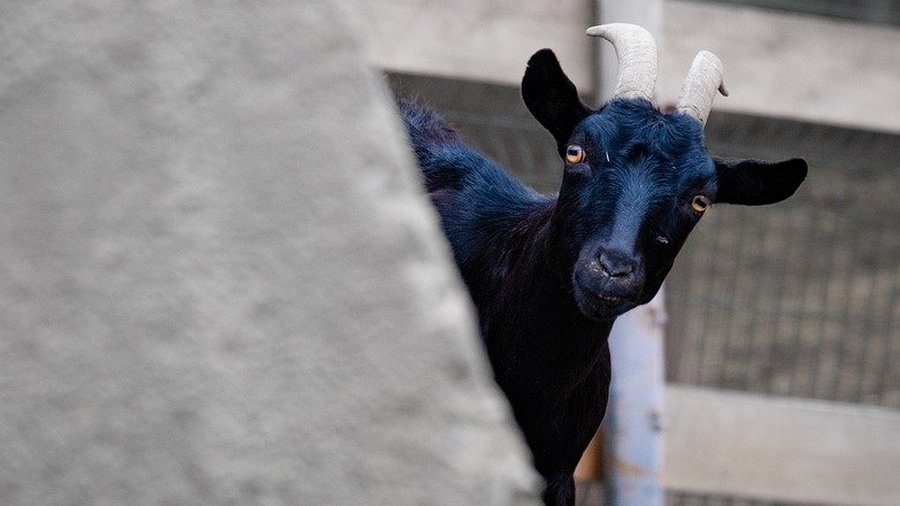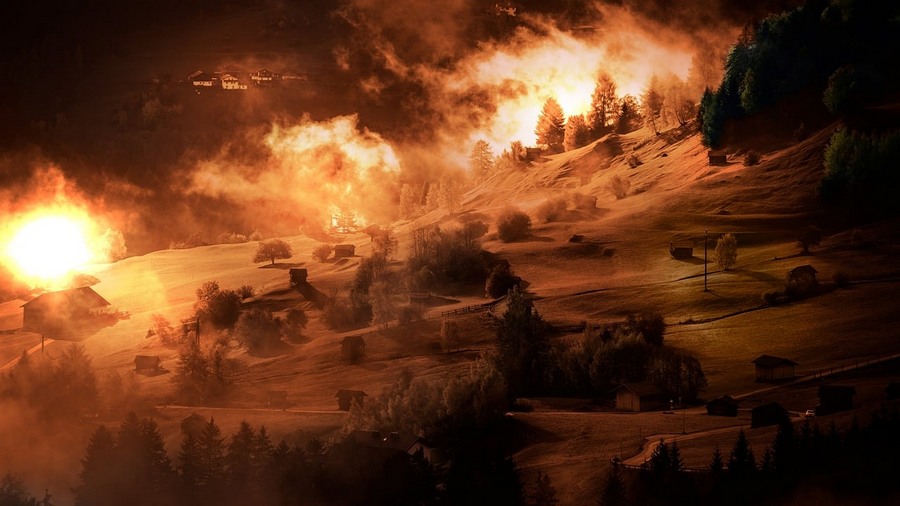Thus have I heard. On one occasion the Blessed One was dwelling among the Bhaggas at Suṁsumaragira in the Bhesakaḷa Grove, the Deer Park. Then the householder Nakulapita approached the Blessed One, paid homage to him, sat down to one side, and said to him:
“I am old, venerable sir, aged, burdened with years, advanced in life, come to the last stage, afflicted in body, often ill. I rarely get to see the Blessed One and the bhikkhus worthy of esteem. Let the Blessed One exhort me, venerable sir, let him instruct me, since that would lead to my welfare and happiness for a long time.”
“So it is, householder, so it is! This body of yours is afflicted, weighed down, encumbered. If anyone carrying around this body were to claim to be healthy even for a moment, what is that due to other than foolishness? Therefore, householder, you should train yourself thus: ‘Even though I am afflicted in body, my mind will be unafflicted.’ Thus should you train yourself.”
Then the householder Nakulapita, having delighted and rejoiced in the Blessed One’s statement, rose from his seat and, having paid homage to the Blessed One, keeping him on his right, he approached the Venerable Sāriputta. Having paid homage to the Venerable Sāriputta, he sat down to one side, and the Venerable Sāriputta then said to him:
“Householder, your faculties are serene, your facial complexion is pure and bright. Did you get to hear a Dhamma talk today in the presence of the Blessed One?”
“Why not, venerable sir? Just now I was anointed by the Blessed One with the ambrosia of a Dhamma talk.”
“With what kind of ambrosia of a Dhamma talk did the Blessed One anoint you, householder?”
“Here, venerable sir, I approached the Blessed One….
The householder Nakulapita repeats his entire conversation with the Buddha.
“It was with the ambrosia of such a Dhamma talk, venerable sir, that the Blessed One anointed me.”
“Didn’t it occur to you, householder, to question the Blessed One further as to how one is afflicted in body and afflicted in mind, and how one is afflicted in body but not afflicted in mind?”
“We would come from far away, venerable sir, to learn the meaning of this statement from the Venerable Sāriputta. It would be good indeed if the Venerable Sāriputta would clear up the meaning of this statement.”
“Then listen and attend closely, householder, I will speak.”
“Yes, venerable sir,” the householder Nakulapita replied. The Venerable Sāriputta said this:
“How, householder, is one afflicted in body and afflicted in mind? Here, householder, the uninstructed worldling, who is not a seer of the noble ones and is unskilled and undisciplined in their Dhamma, who is not a seer of superior persons and is unskilled and undisciplined in their Dhamma, regards form as self, or self as possessing form, or form as in self, or self as in form. He lives obsessed by the notions: ‘I am form, form is mine.’ As he lives obsessed by these notions, that form of his changes and alters. With the change and alteration of form, there arise in him sorrow, lamentation, pain, displeasure, and despair.
“He regards feeling as self, or self as possessing feeling, or feeling as in self, or self as in feeling. He lives obsessed by the notions: ‘I am feeling, feeling is mine.’ As he lives obsessed by these notions, that feeling of his changes and alters. With the change and alteration of feeling, there arise in him sorrow, lamentation, pain, displeasure, and despair.
“He regards perception as self, or self as possessing perception, or perception as in self, or self as in perception. He lives obsessed by the notions: ‘I am perception, perception is mine.’ As he lives obsessed by these notions, that perception of his changes and alters. With the change and alteration of perception, there arise in him sorrow, lamentation, pain, displeasure, and despair.
“He regards volitional formations as self, or self as possessing volitional formations, or volitional formations as in self, or self as in volitional formations. He lives obsessed by the notions: ‘I am volitional formations, volitional formations are mine.’ As he lives obsessed by these notions, those volitional formations of his change and alter. With the change and alteration of volitional formations, there arise in him sorrow, lamentation, pain, displeasure, and despair.
“He regards consciousness as self, or self as possessing consciousness, or consciousness as in self, or self as in consciousness. He lives obsessed by the notions: ‘I am consciousness, consciousness is mine.’ As he lives obsessed by these notions, that consciousness of his changes and alters. With the change and alteration of consciousness, there arise in him sorrow, lamentation, pain, displeasure, and despair.
“It is in such a way, householder, that one is afflicted in body and afflicted in mind.
“And how, householder, is one afflicted in body but not afflicted in mind? Here, householder, the instructed noble disciple, who is a seer of the noble ones and is skilled and disciplined in their Dhamma, who is a seer of superior persons and is skilled and disciplined in their Dhamma, does not regard form as self, or self as possessing form, or form as in self, or self as in form. He does not live obsessed by the notions: ‘I am form, form is mine.’ As he lives unobsessed by these notions, that form of his changes and alters. With the change and alteration of form, there do not arise in him sorrow, lamentation, pain, displeasure, and despair.
“He does not regard feeling as self, or self as possessing feeling, or feeling as in self, or self as in feeling. He does not live obsessed by the notions: ‘I am feeling, feeling is mine.’ As he lives unobsessed by these notions, that feeling of his changes and alters. With the change and alteration of feeling, there do not arise in him sorrow, lamentation, pain, displeasure, and despair.
“He does not regard perception as self, or self as possessing perception, or perception as in self, or self as in perception. He does not live obsessed by the notions: ‘I am perception, perception is mine.’ As he lives unobsessed by these notions, that perception of his changes and alters. With the change and alteration of perception, there do not arise in him sorrow, lamentation, pain, displeasure, and despair.
“He does not regard volitional formations as self, or self as possessing volitional formations, or volitional formations as in self, or self as in volitional formations. He does not live obsessed by the notions: ‘I am volitional formations, volitional formations are mine.’ As he lives unobsessed by these notions, those volitional formations of his change and alter. With the change and alteration of volitional formations, there do not arise in him sorrow, lamentation, pain, displeasure, and despair.
“He does not regard consciousness as self, or self as possessing consciousness, or consciousness as in self, or self as in consciousness. He does not live obsessed by the notions: ‘I am consciousness, consciousness is mine.’ As he lives unobsessed by these notions, that consciousness of his changes and alters. With the change and alteration of consciousness, there do not arise in him sorrow, lamentation, pain, displeasure, and despair.
“It is in such a way, householder, that one is afflicted in body but not afflicted in mind.”
This is what the Venerable Sāriputta said. Elated, the householder Nakulapita delighted in the Venerable Sāriputta’s statement.
Read this translation of Saṁyutta Nikāya 22.1 Nakulapitusutta: Nakulapita by Bhikkhu Bodhi on SuttaCentral.net. Or read a different translation on SuttaCentral.net or DhammaTalks.org. Or listen on PaliAudio.com or SC-Voice.net. Or explore the Pali on DigitalPaliReader.online.
Or read a translation in Deutsch, বাংলা, Español, Magyar, Bahasa Indonesia, Italiano, 日本語, မြန်မာဘာသာ, Norsk, Português, Română, Русский, සිංහල, Svenska, ไทย, Tiếng Việt, or 汉语. Learn how to find your language.









